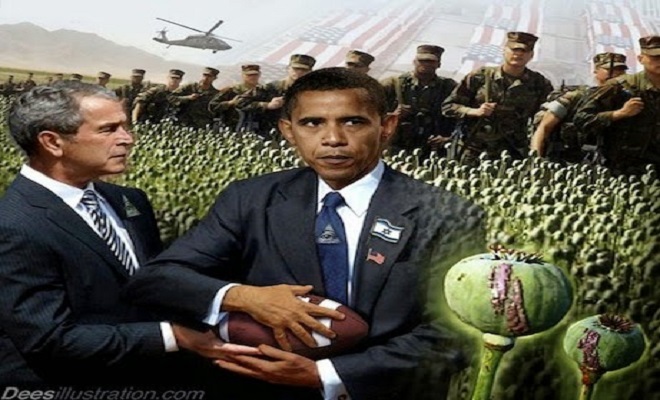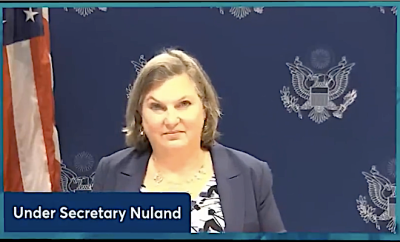 Activist Post
Activist Post
Health
All’s well with Afghanistan opium trade
by SARTRE, Activist Post.com:
Business is booming! “Two years after the ousting of the Taliban regime, which had cracked down ruthlessly on the cultivation of opium, production of the substance last year hit 3,600 tones, up 6 per cent over the previous year, and surveys of farmers show a further increase is likely this year.”
This war against terrorists is great for the drug trade. See any pattern when troops are garrisoned? The protection racket just runs their traffic with more efficiency.
But wait, there is inevitably a proven solution. Just listen to Antonio Maria Costa, the UNODCexecutive director of the UN Office on Drugs and Crime (UNODC). He is the man who set up the first counter-narcotics institutions and counter-narcotics laws. How well has he done! “We face critical decisions. If we don’t start translating counter-narcotics commitment into lower levels of production, we run the risk of the opium economy undermining all that has been achieved in creating a democratic new Afghanistan.”
Just maybe the international narco squad should hire experienced Taliban veterans, since they have the drill down . . . President of Afghanistan Hamid Karzai says the opium-based drug trade is damaging the country’s economy, reputation and national security. He says: “his government has tried unsuccessfully to deal with the problem, and he made repeated pleas in his speech for greater international help.” How about explaining when all that foreign help is administered, the volume of drug shipments hit record levels?
What are the economics of a poppy crop? Ask a local for the answer. Ali managed to harvest seven kilograms of raw opium this year. At a price of about $300 a kilo, he earned almost $2100. In Europe 0.700 grams of pure heroin is worth €70,000 after it is refined from his seven kilograms of raw opium. What is the saying, value added, from your innovative middle man?
Enforcement against the trade reveals that the central prison in Kunduz has but one prisoner arrested for drug-dealing, while brand new jeeps with tinted glass windows speed by without any of the policemen so much as raising a hand to flag them down.
Drug agencies in Britain and other Western European countries are alarmed at the quantities of heroin from Afghanistan. So what is the response from authorities? Initiatives include a program byCustoms and Excise to set up mobile detection units to trap heroin shipments into Kabul and efforts to encourage the Afghan army to play a greater role in destroying crops. DFID has also allocated £20m to schemes to encourage the growth of kitchen gardening and poultry farming to replace poppy fields.
According to the Russians, they blame NATO. Sergei Ivanov said Afghanistan was now producing nine times the quantity of drugs it did under the Taliban. “It is understandable that by allowing drug peddling in Afghanistan, the [NATO] alliance ensures loyalty of warlords on the ground and of some Afghan leaders.” At the Bonn Conference shortly after the fall of the Taliban regime, the British were given the task of stopping the supply. Their approach favors the burning of poppy fields and destroying the drug labs. The U.S. supports “slash and burn” tactics, but Berlin has a different approach. The German Society for Technical Cooperation (GTZ), proposes that the cultivation of wheat, wine, fruit or spices could well replace the production of heroin as a source of making a living for Afghans. “We have spoken with farmers. Many would stop growing opium if they could survive by producing other products.”
WOW what a deal! Common sense would conclude that simply giving a replacement income to the entire population would be cheaper than the counterfeit war to stop opium. Despite the savings from importing poison, Western Europe would recoup the costs of the social destruction from the drug culture. Nevertheless, that graceful solution would displace the profit and leverage that the unholy alliance for fine tuning dependent addicts and keeping the masses docile and helpless. The elementary truth is that governments have no desire to eliminate drug usage. Anyone remember the lessons of the Opium War? Another fine example of British global benevolence, that the Chinese are not inclined to forgive easily.
This time the targets are the domestic depressed. With the rewards of the welfare state, existence is an obligatory queue in the dole line. The ancillary joy of life means you need to serve the pusher or the ecstasy is withheld. Once again the essential question: Where is the benefit for native citizens from an interventionist international foreign policy? The farmer Ali says: “We’re forced to plant opium,” in order for his wife and eleven children to survive the long bitter winter of Afghanistan.
Well, a wintry season has civilized societies in its grip. The bitter cold will become a glacier that freezes any hope for a spring rebirth. The fleeting rush of warmth from ingestion carries permanent scars of injection. Not only does the body die a slow death, but the essence of the society is ripped from the souls of the productive. Governments could stop the trade in drugs if they wished. Ask who benefits most from the trade? The permanent hoax and public show to stop the importation of drugs has provided cover for a more insidious dependency. When you cash that government check, ask what price did you really pay for the joy from that drug.












